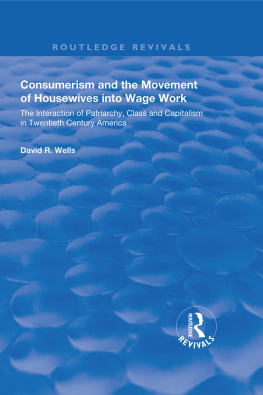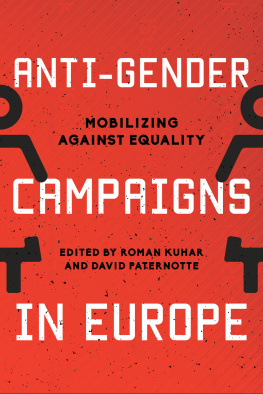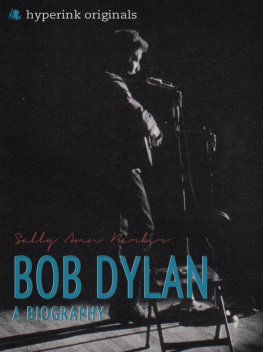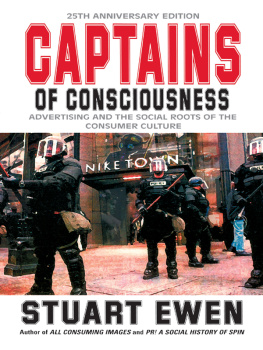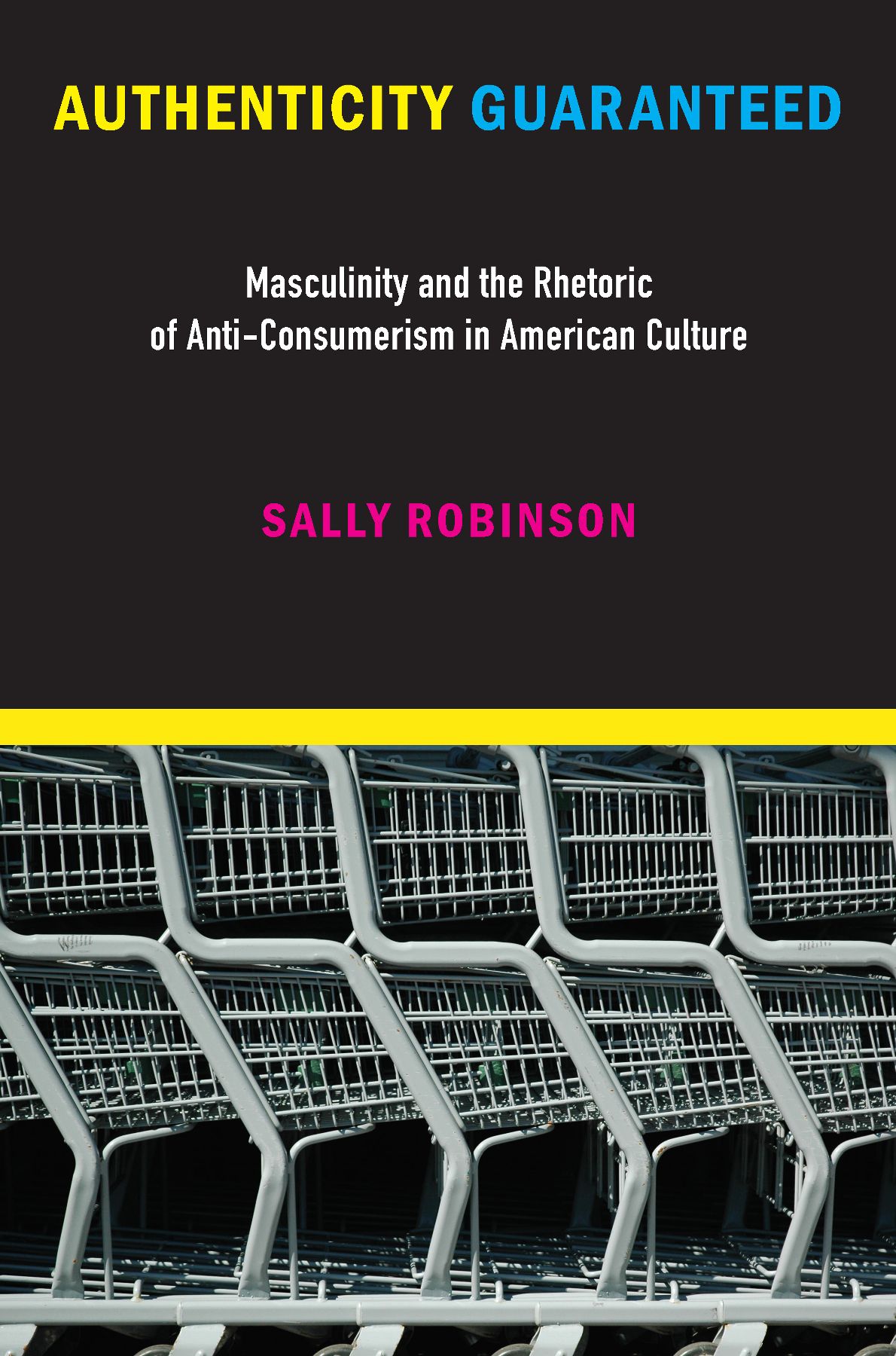
Authenticity Guaranteed
Authenticity Guaranteed
Masculinity and the Rhetoric of Anti-Consumerism in American Culture
Sally Robinson
University of Massachusetts Press
Amherst and Boston
Copyright 2018 by University of Massachusetts Press
All rights reserved
ISBN 978-1-61376-594-4 (e-book)
Cover design by Patricia Duque Campos
Cover photo: Repetition, courtesy of Yui Sotzaki.
Library of Congress Cataloging-in-Publication Data
Names: Robinson, Sally, 1959 author.
Title: Authenticity guaranteed : masculinity and the rhetoric of
anti-consumerism in American culture / Sally Robinson.
Description: Amherst : University of Massachusetts Press, [2018] | Includes
bibliographical references and index. |
Identifiers: LCCN 2017050260 (print) | LCCN 2017054511 (ebook) | ISBN
9781613765944 (e-book) | ISBN 9781613765951 (e-book) | ISBN 9781625343529
hardcover) | ISBN 9781625343536 (pbk.)
Subjects: LCSH: Consumption (Economics)Social aspectsUnited States. |
MasculinityUnited States.
Classification: LCC HC110.C6 (ebook) | LCC HC110.C6 R628 2018 (print) | DDC
06.30973dc23
LC record available at https://lccn.loc.gov/2017050260
British Library Cataloguing-in-Publication Data
A catalog record for this book is available from the British Library.
A portion of chapter 2 was previously published in Salingers The Catcher in the Rye, edited by Sarah Graham, for Routledge Study Guides (2007), 6976; a portion of chapter 3 was published in Genders, no. 53 (2011); and a portion of chapter 4 was published in Postmodern Culture 23, no. 2 (2014).
Contents
Fantasies of Authenticity
Masculinity, Feminization, and Anti-Consumerist Critique
Authentic Individuals and Organization Men
Masculine Protest in the 1950s
Shopping for the Real
Anti-Consumerism and the Gender Politics of Postmodern Critique
The Real Deal
Fighting the Feminizations of Consumer Culture
To Shop or Not to Shop
Consumerist Anti-Consumerism and the Production of Guilty Pleasure
For Stan Raleigh
T his project began in 1999 at a movie theater in College Station, Texas, where I purchased a ticket to watch a commercial Hollywood film that savaged American commercialism by trotting out a well-worn narrative about gender and consumer culture. That film was Fight Club, and underlying its plot was a narrative about how consumer culture is a feminizing force that robs men of their individuality, autonomy, and authenticity and, further, transforms the United States into a nation of mindless, valueless shoppers. This film rubbed me the wrong way, to say the least. However, I was not bothered so much by the violence the film imagines to be a cure for what ails men and U.S. culture as by its story about how masculinity is endangered by women, by feminism, and by the multiple emasculations demanded by a contemporary American culture. My irritation only grew when it became evident that audiences, reviewers, and even scholars responding to the film bought its premise, hook, line, and sinker. Was it really possible, at the turn of the twenty-first century, decades after feminist theory and criticism have been institutionalized in universities and absorbed by popular culture, that this narrative could still have the power to explain the workings of consumer capitalism? Do people really still buy the premise that men are robbed of their masculinity by a feminizing consumer culture? What is it about this shopworn narrative that makes it so irresistible?
This book attempts to answer these questions and to account for the surprising persistence of a narrative that really should have disappeared decades ago. This narrative positions men and the masculine on the side of rebellion and women and femininity on the side of conformity, and it is characterized by a moralizing tone and an elitist tendency to divide the world into insiders and outsiders. My argument is that consumerism becomes a convenient target for social critics who wish to register anxieties about perceived attacks on masculinity, individualism, and authenticity. But in insisting that consumer culture is feminizing, anti-consumerism makes masculine protest the most potent form of social criticism and, further, reinforces a very traditional gender system based on essential and ([ \xa0])\.([ \xa0])\.([ \xa0])\.([ \xa0])\.ahistorical difference. My archive for this project includes not only literary texts and popular culture but also widely read works from sociologists, marketers, and all kinds of writers interested in diagnosing the perils of American consumer culture. One of the most surprising things I have found as I worked with this archive is the emotional tenor of anti-consumerism, its hostility and anger not only toward shopping and other consumer activities but also toward consumers (who, of course, are most often represented as feminine). And one of the most exciting things I have found as I have worked on this book is that when I talk about this American feminization narrative, women often respond with an enthusiastic Yes! Recently reading through a library book called Women Who Shop Too Much, I was delighted to find a Post-It note expressing shock and perhaps anger at the truth of the premise that shopping is a feminine activity and female shoppers the perfect dupes of consumer culture, unable to control their impulses: Shopaholicsalways referred to as being women!! I like to think of this Post-It comment as witnessing in some young woman, perhaps a marketing major, an aha! moment, one I have often witnessed in my students. It rarely occurs to these students to challenge the commonsense idea that shopping is a feminine activity or that consumer culture feminizes men. Nor have any of us, really, been provoked to think about how this formulation depends on the self-evident truth that all things feminine are trivial, out of control, prone to weakness, and so on.
Many students have helped shape this book, but I have also had many more casual conversations with non-academics who have encouraged me to develop these ideasnot least Stan, Emma, and Lucy Raleigh. I wish to thank Dana Lawrence, research assistant extraordinaire, for her work collecting material for chapter 2. Becca Harris and Brian Yost were excellent sparring partners whose very different perspectives on contemporary American culture helped me to articulate my own. Scores of undergraduate students who have taken my courses on consumerism in American culture and my class Art or Trash? have lent their insights and made this a better book. A number of colleagues have responded to various parts of this book in formal and informal settings; thanks to Mary Ann OFarrell, David McWhirter, Vanita Reddy, Larry J. Reynolds, Claudia Nelson, Anne Morey, Emily Johansen, and Nandra Perry. Early encouragement came from Marlon Ross. I wish also to thank the Melbern G. Glasscock Center for Humanities Research at Texas A&M for early support.
Authenticity Guaranteed
C omplaints about consumerism have a long history in American culture. From the middle of the nineteenth century to the beginning of the twenty-first, critics of, and rebels against, consumerism have contributed chapters to a long-running narrative about how consumer culture endangers authenticity, destroys individuality, and subjects the individual to forces that sap his creativity and commodify his personality. This narrative depends on a construction of gender that places masculinity on the side of the individual who is both subjected to consumer forces and authorized to complain about them, and femininity on the side of the social mechanisms, systems, and conventions that aim to curtail masculine agency and authenticity. Protests against consumer culture also reveal a stubborn elitism that continues to haunt American culture, legible in variations on hip anti-consumerism. This often smug anti-consumerism pops up throughout the second half of the twentieth century and shows little sign of dying out in the twenty-first. It is perfectly embodied in a bumper sticker that showed up in the 1970s, in such liberal enclaves as Northampton, Massachusetts, where I grew up and, later, in the 1990s, in Ann Arbor, Michigan, where I then worked. Kill Your TV, this bumper sticker exhorted and, in doing so, addressed its audience as savvy, highbrow, and superior to the poor, deluded masses who waste so much time in front of the box. This slogan stakes a claim to cultural resistance, but it is a cultural resistance that depends on an elitist desire to differentiate between insiders and outsiders, those in the know and those hopelessly unknowing. The meaning of the Kill Your TV bumper sticker is ensured by its placement in a familiar narrative about how rebellion against mass culture is a sign of intellectual superiority and a badge of honor.
Next page

